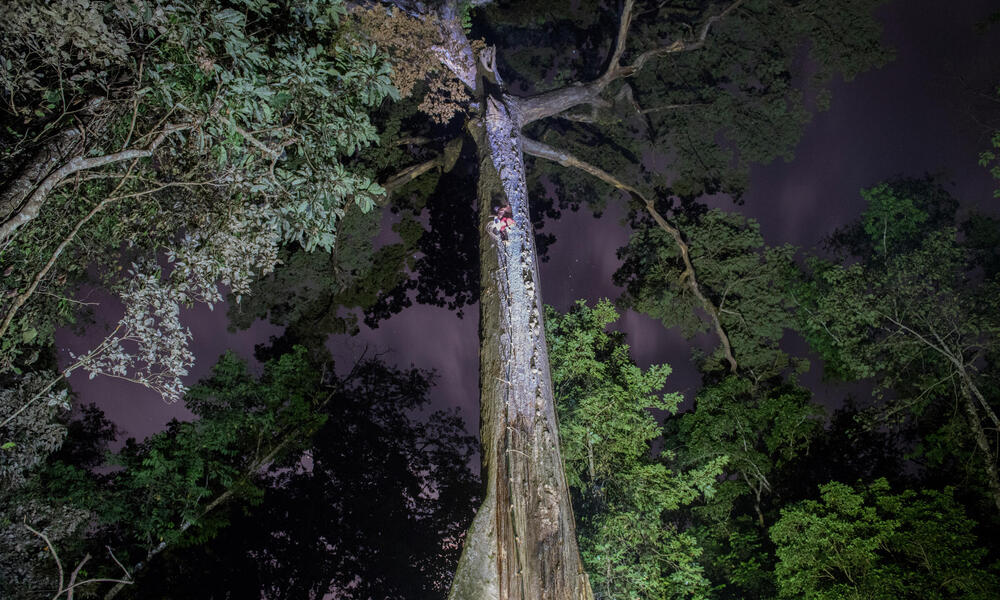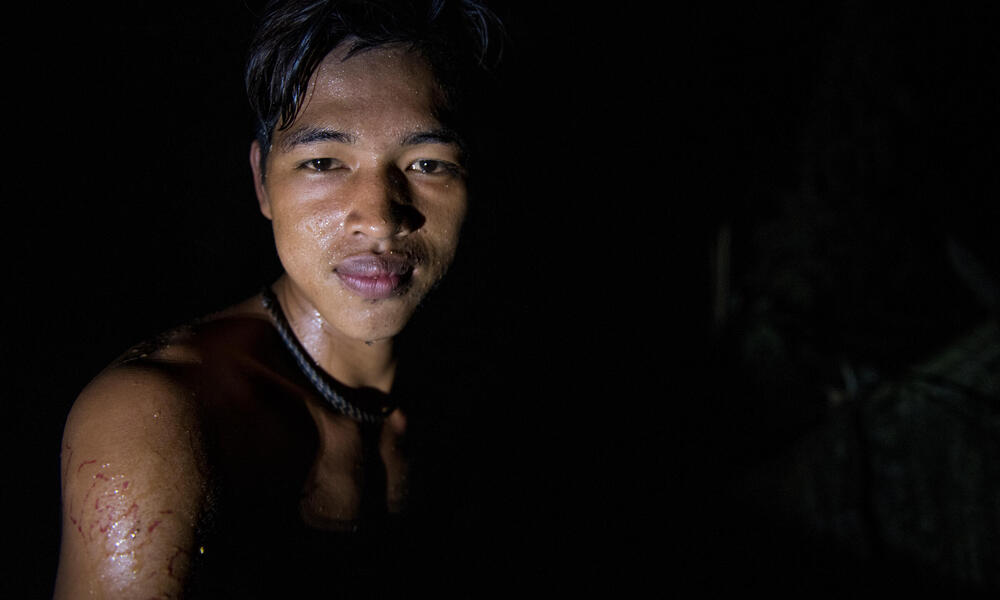The company was launched in 2015 by WWF-Indonesia, the Frankfurt Zoological Society and The Orangutan Project to protect a large forest concession of land in Thirty Hills. A pulp and paper company had been trying to acquire and clear the concession for plantations, but ABT won the license to it as an “ecosystem restoration concession.” Now, the company is working with local communities there to create a sustainable business plan to create revenue from the intact forest, from everything from sialang honey and rubber to rugs, baskets, and other handicrafts made from rattan and bamboo.
Some of those communities, like Feri’s, live inside ABT’s concession. While they don’t legally own their land, they have deep roots in Thirty Hills. “We believe this forest is ancient, and that it is a family member of the Talang Mamak,” says Fahmi, the head of Feri’s village. ABT wants the indigenous communities to stay in the concession and prosper from its sustainable production model.
Other settlements, like the village of Suo Suo, lie just outside the concession’s boundaries. “We were already making these products before,” says Adnan, a 69-year-old Suo Suo resident, sitting cross-legged in one of the village houses as she works a new strand of bamboo into a woven basket. “But ABT can help us sell them to bigger markets so we can make more income.”

